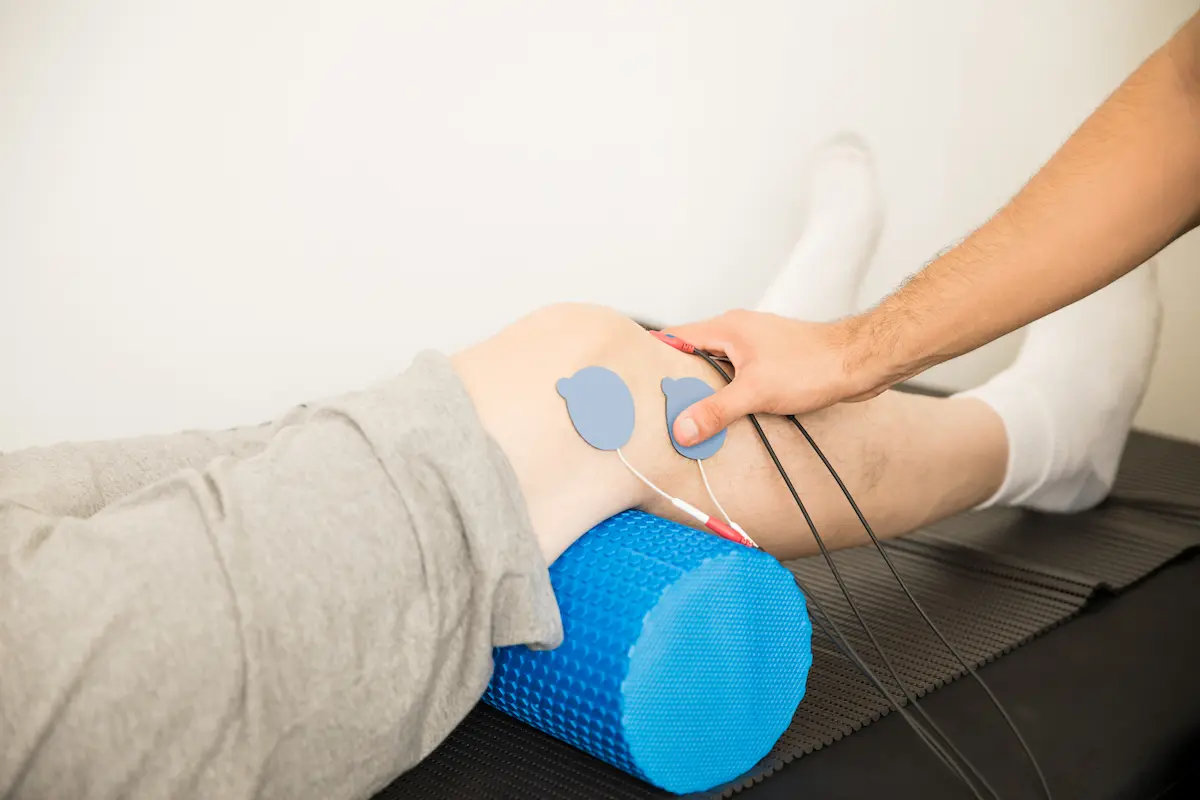
- Home
- About
- Services
- Specialists
- Research
- Achivements
- gallery
- contact








- Home
- About Us
- Orthopedics
- Know Your Alignment
- Sports Medicine
- Knee
- Arthroscopic ACI Cartilage Transplant
- Arthroscopic ACL Avulsion Fixation
- Arthroscopic ACL Primary Repair
- Arthroscopic ACL Reconstruction – All Inside Technique
- Arthroscopic ACL Rehab
- Arthroscopic ACL Revision Surgery
- Arthroscopic ACL Single Bundle Reconstruction
- Arthroscopic assisted MPFL Reconstruction
- Arthroscopic assisted Multiple Ligament Tear – SURGERY
- Arthroscopic Medial Meniscal Repair
- Arthroscopic OATS Chondroplasty
- Arthroscopic OCD Fixation
- Arthroscopic Paediatric ACL Reconstruction
- Arthroscopic PCL Avulsion Fixation
- Arthroscopic PCL Reconstruction
- Arthroscopy Assisted STEM Cell Cartilage Transplant
- PCL Rehabilitation
- Total Knee Replacement
- Shoulder
- Arthroscopic Rotator Cuff Repair
- Arthroscopic Bankart Repair
- Arthroscopy Assisted Latarjet Surgery
- AC Joint Fixation
- Arthroscopic Capsular Release
- Arthroscopic Sub – Acromial Decompression (SAD)
- Arthroscopic Calcific Tendinitis Excision
- Arthroscopic Biceps Tenodesis
- Arthroscopic SLAP Repair
- Arthroscopic Revision Cuff Repair
- Arthroscopic Revision Bankart Repair
- Shoulder Rehab
- Elbow
- Wrist
- Hip
- Ankle
- Our Specialities
- Podiatric / Diabetic Foot Clinic
- General Surgery & Gastroenterology
- Obstetrics & Gynaecology
- Internal Medicine & Diabetology
- ENT
- Plastic & Cosmetic Surgery
- Paediatrics
- Pulmonology
- Nephrology & Urology
- Psychiatry
- Rheumatology
- Vascular Surgery
- Anaesthesiology & Intensive Care Unit
- Dermatology
- Oncology
- Radiology
- Sonology
- Endocrinology
- Cardiology
- Neurology
- Oral and Maxillofacial Surgery
- Our Services
- Resource
- Enquiry


- Home
- About Us
- Orthopedics
- Know Your Alignment
- Sports Medicine
- Knee
- Arthroscopic ACI Cartilage Transplant
- Arthroscopic ACL Avulsion Fixation
- Arthroscopic ACL Primary Repair
- Arthroscopic ACL Reconstruction – All Inside Technique
- Arthroscopic ACL Rehab
- Arthroscopic ACL Revision Surgery
- Arthroscopic ACL Single Bundle Reconstruction
- Arthroscopic assisted MPFL Reconstruction
- Arthroscopic assisted Multiple Ligament Tear – SURGERY
- Arthroscopic Medial Meniscal Repair
- Arthroscopic OATS Chondroplasty
- Arthroscopic OCD Fixation
- Arthroscopic Paediatric ACL Reconstruction
- Arthroscopic PCL Avulsion Fixation
- Arthroscopic PCL Reconstruction
- Arthroscopy Assisted STEM Cell Cartilage Transplant
- PCL Rehabilitation
- Total Knee Replacement
- Shoulder
- Arthroscopic Rotator Cuff Repair
- Arthroscopic Bankart Repair
- Arthroscopy Assisted Latarjet Surgery
- AC Joint Fixation
- Arthroscopic Capsular Release
- Arthroscopic Sub – Acromial Decompression (SAD)
- Arthroscopic Calcific Tendinitis Excision
- Arthroscopic Biceps Tenodesis
- Arthroscopic SLAP Repair
- Arthroscopic Revision Cuff Repair
- Arthroscopic Revision Bankart Repair
- Shoulder Rehab
- Elbow
- Wrist
- Hip
- Ankle
- Our Specialities
- Podiatric / Diabetic Foot Clinic
- General Surgery & Gastroenterology
- Obstetrics & Gynaecology
- Internal Medicine & Diabetology
- ENT
- Plastic & Cosmetic Surgery
- Paediatrics
- Pulmonology
- Nephrology & Urology
- Psychiatry
- Rheumatology
- Vascular Surgery
- Anaesthesiology & Intensive Care Unit
- Dermatology
- Oncology
- Radiology
- Sonology
- Endocrinology
- Cardiology
- Neurology
- Oral and Maxillofacial Surgery
- Our Services
- Resource
- Enquiry



- Home
- About Us
- Orthopedics
- Know Your Alignment
- Sports Medicine
- Knee
- Arthroscopic ACI Cartilage Transplant
- Arthroscopic ACL Avulsion Fixation
- Arthroscopic ACL Primary Repair
- Arthroscopic ACL Reconstruction – All Inside Technique
- Arthroscopic ACL Rehab
- Arthroscopic ACL Revision Surgery
- Arthroscopic ACL Single Bundle Reconstruction
- Arthroscopic assisted MPFL Reconstruction
- Arthroscopic assisted Multiple Ligament Tear – SURGERY
- Arthroscopic Medial Meniscal Repair
- Arthroscopic OATS Chondroplasty
- Arthroscopic OCD Fixation
- Arthroscopic Paediatric ACL Reconstruction
- Arthroscopic PCL Avulsion Fixation
- Arthroscopic PCL Reconstruction
- Arthroscopy Assisted STEM Cell Cartilage Transplant
- PCL Rehabilitation
- Total Knee Replacement
- Shoulder
- Arthroscopic Rotator Cuff Repair
- Arthroscopic Bankart Repair
- Arthroscopy Assisted Latarjet Surgery
- AC Joint Fixation
- Arthroscopic Capsular Release
- Arthroscopic Sub – Acromial Decompression (SAD)
- Arthroscopic Calcific Tendinitis Excision
- Arthroscopic Biceps Tenodesis
- Arthroscopic SLAP Repair
- Arthroscopic Revision Cuff Repair
- Arthroscopic Revision Bankart Repair
- Shoulder Rehab
- Elbow
- Wrist
- Hip
- Ankle
- Our Specialities
- Podiatric / Diabetic Foot Clinic
- General Surgery & Gastroenterology
- Obstetrics & Gynaecology
- Internal Medicine & Diabetology
- ENT
- Plastic & Cosmetic Surgery
- Paediatrics
- Pulmonology
- Nephrology & Urology
- Psychiatry
- Rheumatology
- Vascular Surgery
- Anaesthesiology & Intensive Care Unit
- Dermatology
- Oncology
- Radiology
- Sonology
- Endocrinology
- Cardiology
- Neurology
- Oral and Maxillofacial Surgery
- Our Services
- Resource
- Enquiry
Knee
Comprehensive Knee Ailments Guide
Welcome to our comprehensive guide on knee ailments, your go-to resource for understanding, managing, and finding relief from knee-related conditions. The knees play a vital role in our mobility, allowing us to walk, run, jump, and perform various activities. However, knee ailments can significantly impact our daily lives, causing pain, discomfort, and limitations in movement.
In this section of our website, we will explore the most common knee ailments, their causes, symptoms, and available treatment options. Whether you’re dealing with knee pain due to an injury, arthritis, or other underlying conditions, we aim to provide you with the knowledge and resources to better understand your situation and make informed decisions about your health.

Comprehensive Knee Ailments Guide
Welcome to our comprehensive guide on knee ailments, your go-to resource for understanding, managing, and finding relief from knee-related conditions. The knees play a vital role in our mobility, allowing us to walk, run, jump, and perform various activities. However, knee ailments can significantly impact our daily lives, causing pain, discomfort, and limitations in movement.
In this section of our website, we will explore the most common knee ailments, their causes, symptoms, and available treatment options. Whether you’re dealing with knee pain due to an injury, arthritis, or other underlying conditions, we aim to provide you with the knowledge and resources to better understand your situation and make informed decisions about your health.
Make an appointment
Make an appointment
Empowering Through Information
Our goal is to empower you with the tools needed to manage knee conditions effectively. We delve into both non-surgical and surgical treatment options, alongside rehabilitation methods, exercises, and lifestyle changes aimed at enhancing knee function and overall well-being.
Our team of medical experts and professionals has meticulously curated this content to guarantee accuracy, relevance, and accessibility. We understand the challenges of living with knee ailments and believe that by taking proactive steps and accessing the right support, you can regain control over your knee health and lead a fulfilling, active life.
Let’s embark on this journey together and arm ourselves with the knowledge required to overcome knee ailments and optimize our well-being. With accurate information and support, you can take proactive steps towards better knee health and a more active lifestyle.
Absolutely! Taking the initiative to educate ourselves about knee health is the first step towards improving our well-being. By understanding the nuances of knee ailments and their management, we empower ourselves to make informed decisions and actively participate in our health journey. Together, let’s embrace this opportunity to prioritize our knee health and cultivate a lifestyle that fosters mobility and vitality.
Make an appointment
Empowering Through Information
Our goal is to empower you with the tools needed to manage knee conditions effectively. We delve into both non-surgical and surgical treatment options, alongside rehabilitation methods, exercises, and lifestyle changes aimed at enhancing knee function and overall well-being.
Our team of medical experts and professionals has meticulously curated this content to guarantee accuracy, relevance, and accessibility. We understand the challenges of living with knee ailments and believe that by taking proactive steps and accessing the right support, you can regain control over your knee health and lead a fulfilling, active life.
Let’s embark on this journey together and arm ourselves with the knowledge required to overcome knee ailments and optimize our well-being. With accurate information and support, you can take proactive steps towards better knee health and a more active lifestyle.
Absolutely! Taking the initiative to educate ourselves about knee health is the first step towards improving our well-being. By understanding the nuances of knee ailments and their management, we empower ourselves to make informed decisions and actively participate in our health journey. Together, let’s embrace this opportunity to prioritize our knee health and cultivate a lifestyle that fosters mobility and vitality.
Knee Ailments
- Anterior Cruciate Ligament (ACL) Injury
- Articular Cartillage Injury/Osteoarthritis
- Medial Collateral Ligament(MCL) Injury
- Posterior Cruciate Ligament (PCL) Injury
-
Chondromalacia
Patella
-
Patella Tendon
injury
- Osteochondritis Dissecans
- Posterolateral Corner Injury
- Meniscus Cyst
- Meniscus Injury
- Bakers Cyst
- Prepatella Bursa
- Patellofemoral Injury
- Patella Dislocation
- Dislocated Knee
- Tendonitis
